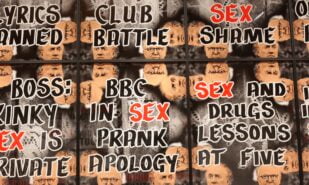Prime Minister Rishi Sunak recently confirmed that elections will take place in the second half of the year. Therefore, before autumn, we will have to carefully piece together the complex mosaic of the political landscape and navigate the web of unresolved Downing Street issues. So, the clock is ticking, and the elections are approaching. What is the current state of affairs?
Elections 2024: Political Thriller Starring Sunak, Starmer, Farage, and Big Money
| Author | |
|---|---|
| Category | Columnists, People, Town |
| Date | January 11 2024 |
| Reading Time | 3 min. |
Elections 2024: Political Thriller Starring Sunak, Starmer, Farage, and Big Money
Taking office amid the echoes of political upheavals left by predecessors Liz Truss and Boris Johnson, Rishi Sunak grappled with the consequences of the controversial COVID-19 policies and the Brexit aftermath. Swift inflation, an overburdened healthcare system, persistent housing shortages, and the need to resolve intra-party disputes—all pose a heavy burden for the politician. Sunak decided to position himself as a centrist figure, attempting to address the concerns of the right-wing Tories on various issues, from immigration to culture, while making populist promises to win public favour. The Prime Minister is working hard to create a unifying front, simultaneously serving very different, often conflicting, interests even within his own party.
Starmer’s Pragmatism and Farage’s Intrigue
Labour leader Keir Starmer has taken a similar position. With a calculated move, he steered his party toward the center, aiming to capitalise on internal disagreements plaguing the Conservatives. Under his pragmatic leadership, Labour successfully appeals to an increasingly broad spectrum of voters disillusioned with the actions of the conservative government.
Recent poll data confirms a seismic shift in the political landscape: Labour enjoys a significant advantage, with a chance for a historic triumph in the upcoming elections. Starmer’s strategic restructuring of the party and political caution resonate with the electorate.
Meanwhile, another force has entered the pre-election chessboard—the return of Nigel Farage to active politics. The specifics of his mysterious role remain unclear, but his associated far-right party, Reform UK, openly acknowledges his participation in the electoral campaign, adding an element of unpredictability to the political game. Experts speculate that Reform UK is capable of taking over 30 seats from the Tories in Parliament.
Revelations from the Tory Camp
Former No. 10 advisor Dominic Cummings recently added intrigue to the backstage of the pre-election scene by unveiling the maneuvers within the Conservative camp. According to Cummings, Sunak actively sought his assistance in secretly crafting the pre-election strategy. This not only exposes internal Tory disputes but also raises questions about Sunak’s political independence. Remember, Dominic Cummings is one of the architects of Brexit, a former advisor to Boris Johnson, and now one of his main critics.
Billionaire John Caudwell, once a major sponsor of the Conservative Party (e.g., he donated half a million pounds to Boris Johnson’s campaign in 2019), surprised many by endorsing Keir Starmer this time. Caudwell stated that he was disappointed and shocked by what he considered inadequate action on climate change. He cited the Tories’ decision to postpone the ban on new petrol and diesel cars as “self-sabotage” and an inability to promptly address environmental issues.
“It won’t affect me because I’ll be long dead and buried,” said the 70-year-old billionaire in an interview with BBC Radio 4. “[But] I am very worried about the future. The environmental apocalypse is coming and it’s coming very, very rapidly.”
According to Caudwell, Starmer has shown greater receptivity to his proposals for economic growth and national prosperity compared to the Conservatives. Without confirming any specific donations, Caudwell emphasised his readiness to support any party able to “put the ‘great’ back into Great Britain.”
Clarifying Relations with Personal Attacks
Rishi Sunak’s decision to postpone the elections until October only heightened political tension. Presenting his Project Hope plan in Bristol, Keir Starmer stated that he anticipates a prolonged battle and promised to respond to Conservative attacks “fire with fire.” Meanwhile, Labour and the Liberal Democrats accused Sunak of “bottling” the campaign, insisting on holding the vote in May. Political analysts believe that by delaying the elections, Sunak likely hopes to wait for economic strengthening after stabilising inflation.
The struggle between the sides intensifies and even turns personal. Nigel Farage sharply criticised UK Home Secretary James Cleverly. Not just criticism but called him an “idiot” and a “liar.” The cause of the criticism was Cleverly’s joy over the absence of boats with illegal migrants during Christmas. Cleverly attributed this to the efforts of border forces. However, social media platform X marked his tweet as “misleading,” stating that adverse weather conditions were the real reason for the situation. In a retaliatory tweet, Farage unleashed real obscenities:
“You may be called Cleverly but you are clearly a moron. I am close to Dover now, the wind has been gusting 50mph… That is why there are no migrant crossings. You charlatans and liars all deserve to lose your seats at the election.”
The temperature is rising! The script for the 2024 elections in the UK increasingly takes the form of a gripping political thriller, where each new chapter brings unexpected twists and plot turns, full of intrigue and contradictions. Overall, it provides food for thought about the country’s future and demands thoughtful choices from voters.




